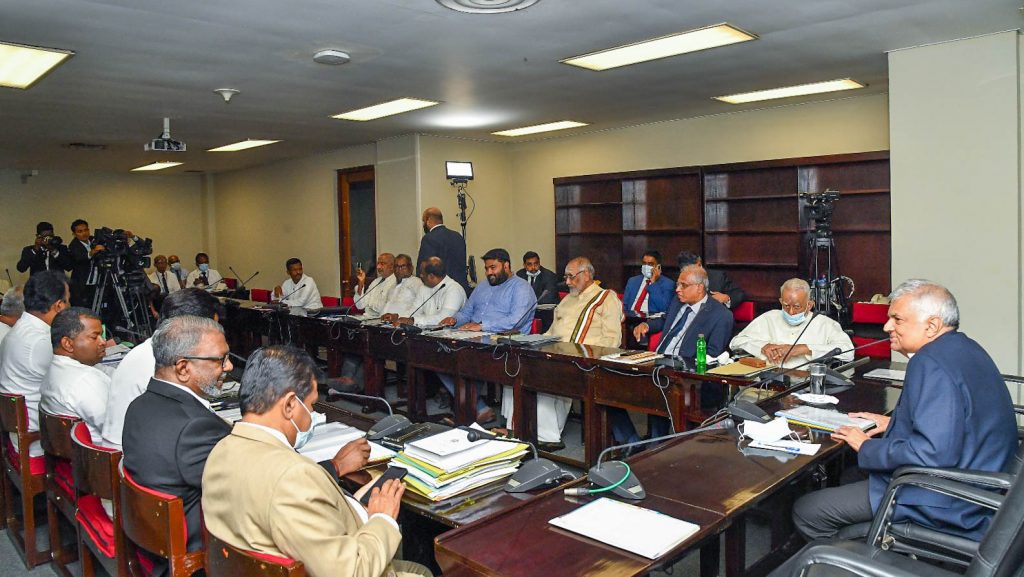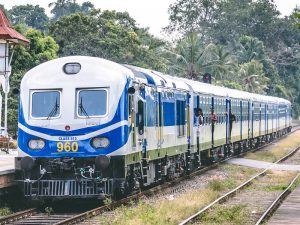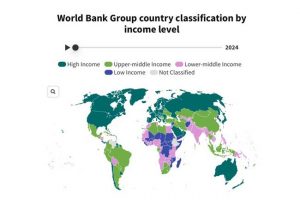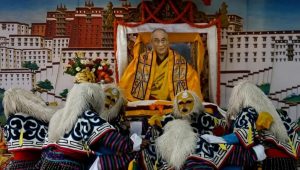Sri Lanka – President Ranil Wickremasinghe high Focus on North East

President Ranil Wickremesinghe met Tamil political party leaders and representatives to discuss pressing issues in the North and East. The Prevention of Terrorism Act (PTA), releasing of land held by the military, resettlement of war displaced, pardoning of LTTE detainees, and devolution of powers under the 13th Amendment to the Constitution are among the issues discussed at the meeting, the President’s Media Division said.
President Ranil Wickremesinghe will undertake an official visit to India on 20-21 July 2023 at the invitation of Prime Minister of India Narendra Modi. The visit takes place as both countries celebrate the 75th anniversary of the establishment of diplomatic relations this year.
On the eve of this visit to India, President Wickremasinghe took the opportunity to discuss many not solved issues in the northern parts of the country.
“President Urges Tamil Party Leaders to Decide on Optimal Solution for North and East Issues. Full Implementation of 13th Amendment Requires Consensus Among Parliament Party Leaders, Says President.” said the President’s Media Division.
During a discussion with Tamil Parliamentarians representing the North and East on Tuesday, 18th of July, President Ranil Wickremesinghe emphasized that he has already put forth a comprehensive proposal to address the problems faced by the people in those regions and it is up to the Tamil Parliamentarians whether to take it forward or not.
President Wickremesinghe expressed his intention to resolve the issues faced by the Tamil people without any political motivations. He elaborated on various bills and plans concerning the functioning of provincial councils, the Office of National Unity and Reconciliation, the Truth-Finding Mechanism, the Office of Missing Persons, and the development of the Northern and Eastern provinces.
The President highlighted the government’s development initiatives for the Northern and Eastern provinces, including projects focused on renewable energy, water supply, infrastructure development, investment promotion zones, and the tourism industry.
President underscored that the full enforcement of the 13th Amendment can only be achieved if all party leaders in the Parliament agree to a comprehensive devolution of powers.
While he was expressing his unwavering dedication to upholding justice for the people of the North and East, emphasized that any further actions taken for their benefit must receive the full support of Parliament through discussion and consensus.
Regarding the 13th Amendment to the Constitution, President Wickremesinghe informed that extensive discussions had taken place on the proposals. While it was possible to grant all powers outlined in the proposal, except for police powers, the inclusion of police powers would require the agreement of all party leaders representing the Parliament. He also noted that a two-thirds majority in Parliament was necessary for such decisions.
The President also discussed various bills concerning the functioning of Provincial Councils after the initial devolution of powers. These bills encompassed the appointment of Regional Secretaries, education, vocational training, higher education, agricultural innovations, industries, and tourism. President Wickremesinghe assured that these bills would be presented to Parliament.
Regarding reconciliation efforts, the President revealed that the draft for the Office of National Unity and Reconciliation had been referred to the Attorney General for constitutional review and would soon be presented to Parliament. Additionally, the National Action Plan on Reconciliation, drafted by the Office of National Unity and Reconciliation (ONUR), would be submitted to the Cabinet in the near future.
In terms of the Truth-Finding Mechanism, the President mentioned that the Interim Secretariat had been established with the appointment of the Director General.
Addressing concerns raised by Tamil party leaders, the President clarified that the government had not discussed or prepared for the merger of the Northern and Eastern provinces. He also stated that the government was reluctant to involve foreign judges in the administration of justice in the North and East but would consider obtaining reports from foreign observers, following existing systems in South and East Asian countries.
The President engaged in extensive discussions about the Anti-Terrorism Bill and the activities of the Office of Missing Persons. Of the 21,374 complaints received by the Office of Investigation of Missing Persons, investigations into 3,462 complaints have been completed thus far. Ongoing investigations are underway for the remaining complaints.
Clarifying the government’s ongoing development program for the northern and eastern provinces, he elaborated on the initiative to attract investment opportunities in the production of green hydrogen and ammonia as renewable energy projects in the North and East. The President further outlined the project aimed at enhancing the appeal of the Colombo port city through green hydrogen.
One of the key objectives of the Northern Development Plan is to harness the region’s renewable energy potential through the production of green hydrogen and ammonia. This strategy aims to attract investments and transform the port of Colombo and Pooneryn into a hub for the renewable energy economy. The President expressed his belief that this approach would lead to substantial growth in the sector.
Additionally, the “Water to the North” project includes various developments such as the Poonekery Tank, River for Jaffna (bringing fresh water to Jaffna Lagoon and increasing the water capacity of the Iranamadu Tank), the Small Tanks renewal program, the development of KKS Harbour, the development of Vauniya and Palaly Airports, the Ferry Service connecting the Northern Province and South India, the establishment of Investment Promotion Zones in KKS, Paranthan, and Mankulam, tourism promotion in the North, and the enhancement of Jaffna as a university town.
The President informed the East and North Tamil MPs about plans for the development of tourist attractions in Jaffna and Mannar, a tourist boating project around Mannar Fort and Kankasanthurai Island, the promotion of coconut cultivation in the Wanni district, and projects aimed at developing Jaffna as a university city.









